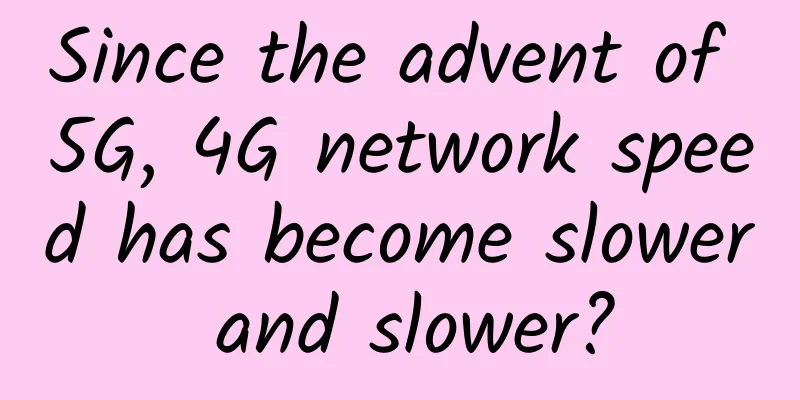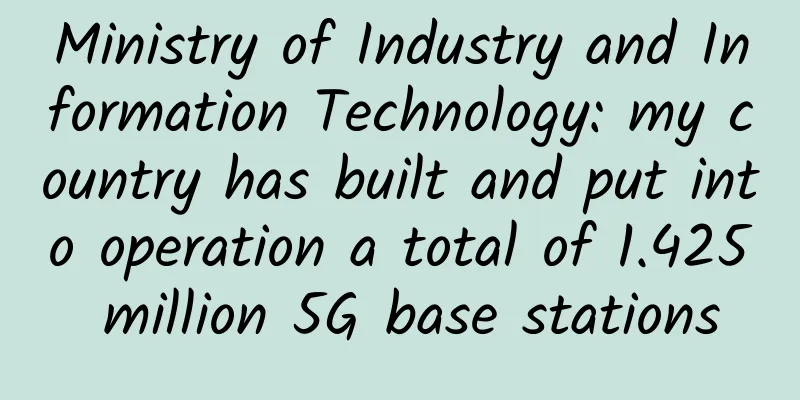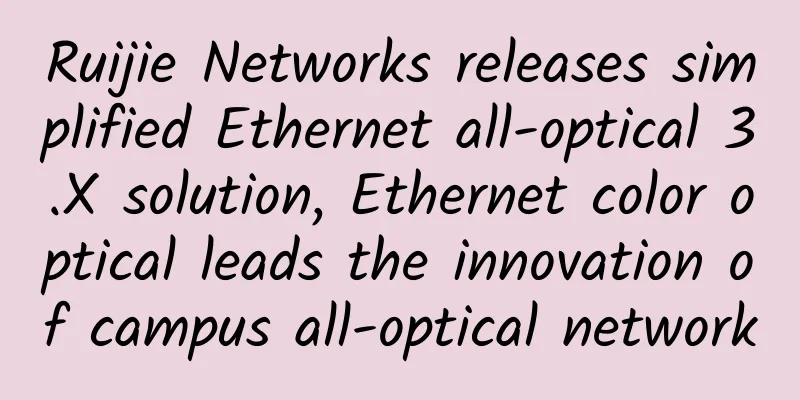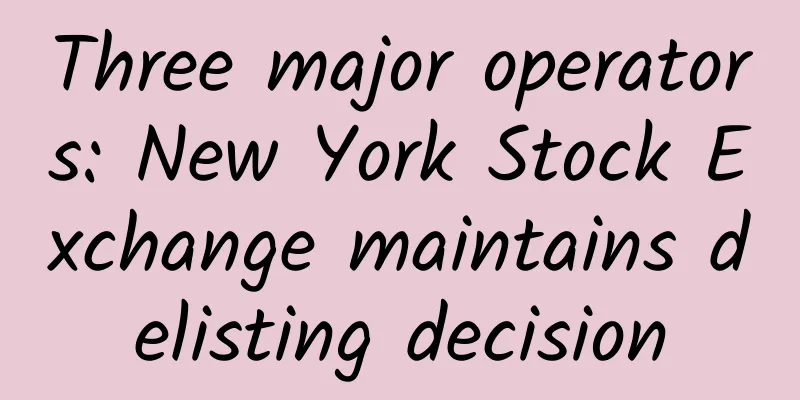Huawei: Building a smart city nervous system to help cities transform digitally
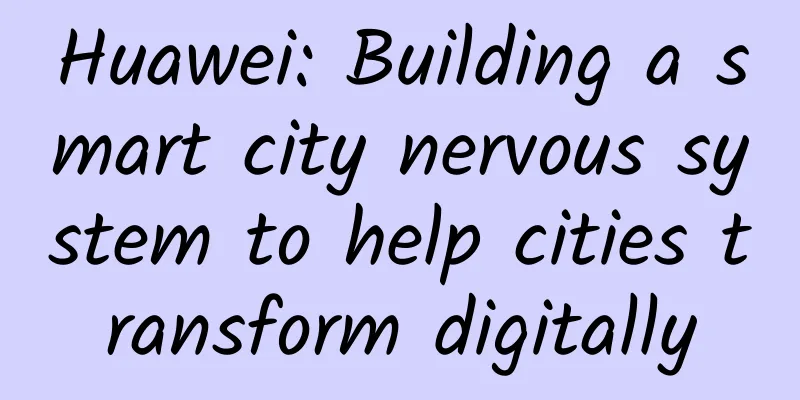
|
On December 20, the 8th China Internet of Things Industry and Smart City Development Annual Conference "China Smart City Innovation and Cooperation Forum" was successfully held, hosted by China Communications Industry Association and China Communications Industry Association Internet of Things Application Branch, and supported by Huawei Technologies Co., Ltd. and other units. Yang Xueshan, former vice minister of the Ministry of Industry and Information Technology, attended and delivered a speech. Ministries and commissions such as the Ministry of Industry and Information Technology, the National Development and Reform Commission, and domestic authoritative experts attended the conference. Huawei participated in the conference with the theme of "New ICT, Building the Nervous System of Smart Cities". Yao Jiankui, chief engineer of Huawei EBG China Smart City, shared Huawei's smart city concept and rich practical experience. Fan Xinhong, deputy mayor of Guilin Municipal People's Government, Mao Zhibing, deputy mayor of Yiyang Municipal People's Government, and Gong Wuyun, secretary-general, attended the conference and shared their experience in smart city construction. "Smart city" is a new urban form in the information age, a new driving force for urban development, and a new way of thinking to improve urban quality. Smart city is not only a development vision, but also a precise entry point to enhance the core competitiveness of the city, providing an effective way to enhance urban management efficiency, improve people's happiness, and optimize economic structure, which will continuously promote the high-end development of the city. Build a smart city nervous system to help cities transform digitally In the keynote speech, Yao Jiankui, Chief Engineer of Smart City, Huawei EBG China, said: Smart city is a combination of city + city + industry, a combination of physical city and digital economy. The city of trinity constitutes an organic life form. The city is no longer just a simple superposition of several functions, but an organic whole. The subsystems are generally connected, mutually promoted and coordinated. Smart city has the function of self-evolution and self-growth, which is an iterative evolution process. Therefore, the organic life form of the city needs a nervous system. The nervous system of smart city is to deeply integrate the new generation of information and communication systems such as cloud computing, big data, Internet of Things, mobile Internet, artificial intelligence, etc. with the scenes of the city, to build a collaborative ecology and interactive system of "perception everywhere, connection everywhere, computing everywhere, and intelligence everywhere" for the city, to improve the city's public service capabilities, enhance the happiness of citizens, promote the development of urban industries, promote the evolution of the organic life form of the city, and help the digital transformation of the city. Yao Jiankui, Chief Engineer of Smart City, Huawei EBG China Huawei's smart city solutions have helped more than 120 cities in more than 40 countries around the world build smart cities. In 2017, Huawei participated in 48 smart city projects in China, including Beijing, Shenzhen, Dunhuang, Weifang, and Yiyang, and signed strategic cooperation agreements with 80 cities. The smart city applications implemented together with partners cover smart government affairs, smart policing, smart transportation, smart education, smart manufacturing, smart street lights and other fields. Become a smart city practitioner and build a nervous system for the city Guilin is a national pilot city for information benefiting the people and a national pilot zone for the integration of informatization and industrialization. The Guilin Municipal People's Government and Huawei have started cooperation on the Guilin Huawei Information Ecological Industry Cooperation Zone. The two sides will work closely in the fields of smart cities, cloud computing and big data to jointly build projects such as the Guilin Cloud Computing Data Center and the Smart Exhibition Center. Huawei will provide the overall solution for the Guilin Cloud Computing Data Center, which is planned to have a scale of more than 10,000 cabinets in the future. It will serve as the "smart foundation" of Guilin's smart city, fully carrying the construction of the "smart brain", "smart heart", "smart management", "smart benefits" and "smart industry" of Smart Guilin, realizing the city's prosperity through data, information and intelligence, and supporting the realization of Guilin's vision of building an international tourist destination. Fan Xinhong, deputy mayor of Guilin Municipal People's Government, said: Guilin hopes to introduce new ICT industries through the construction of smart cities and industrial development, and build three major urban functional sectors: the first sector is the Lijiang River landscape, through smart river chiefs, smart tourism, smart ecology, and smart agriculture, to protect the Lijiang River, Guilin's green mountains and clear waters, and the lifeblood of Guilin's development. The second sector is the old city of Guilin, which will integrate information technology with culture, ecology, and tourism to ease and upgrade it into the world's top international tourist destination. The third sector is the industrial new city outside the Lijiang River Basin, which will build the Guilin Economic and Technological Development Zone into China's greenest, most efficient, and most beautiful economic development zone, realize the integrated development of industry and city, and help the people of Guilin engage in modern smart industries and live a modern urban life. Fan Xinhong, Deputy Mayor of Guilin Municipal People's Government Yiyang, Hunan is a national pilot city for information benefit for the people, a national pilot city for universal telecommunications services, and a demonstration city for broadband China. Currently, Yiyang has reached a strategic cooperation with Huawei and China Telecom to jointly commit to the construction of a new smart city, and is striving to become a national benchmark city for a new smart city. To this end, Yiyang asked Huawei to compile a top-level design plan for a smart city for Yiyang, drawing a scientific blueprint for the construction of a new smart city in Yiyang. Gong Wuyun, deputy secretary-general of the Yiyang Municipal People's Government of Hunan Province, said that the construction of Yiyang's new smart city is in full compliance with the requirements of the top-level design plan, adhering to the "five unifications" principle of unified planning, unified construction, unified standards, unified management, and unified operation and maintenance, implementing the overall promotion of "one game for the whole city", and striving to create the "Yiyang model" of new smart city construction. At present, the Hunan New Smart City Construction Research Institute has settled in Yiyang, and the Internet + government service system has been put into operation, forming a unique "one list, one table, one hall, one window, one network, and one number" government service new model in Yiyang. The smart brain project that Huawei helped Yiyang build has been launched, and the smart brain operation and management center will be built to carry the city's smart application business system, gather and integrate various government big data in the city, and achieve the goal of "smart Yiyang".
Gong Wuyun, Deputy Secretary-General of the People's Government of Yiyang City, Hunan Province At the awards ceremony of the conference, cities such as Guilin and Yiyang won the "2017 China Smart City Demonstration City Award" and Huawei won the "2017 China Smart City Excellent Solution Award". Guilin and Yiyang won the "2017 China Smart City Demonstration City Award". Mao Zhibing, deputy mayor of Yiyang Municipal People's Government (second from left), and Chu Zheng, deputy director of Guilin Economic and Technological Development Zone (third from left) received the award. Huawei won the "2017 China Smart City Excellent Solution Award". Yao Jiankui (second from left), Chief Engineer of Huawei EBG China Smart City, received the award. |
>>: Five realistic predictions for enterprise IT in 2018
Recommend
Alibaba Cloud Double 11 Carnival: Cloud server annual payment starts from 85 yuan, cloud database starts from 19.9 yuan/year, com domain name starts from 23 yuan
When talking about domestic cloud server manufact...
How to disable IPv6 on Ubuntu Linux
Wondering how to disable IPv6 on Ubuntu? In this ...
You can experience high-speed 5G network without 5G package, the three major operators confirmed, netizens are happy
Is this the norm for most people now? They hold 5...
How to decide if Wi-Fi 6 is right for you?
There’s a lot of hype surrounding the next Wi-Fi ...
Ministry of Industry and Information Technology: A number of key 5G technologies for specific needs of the industrial Internet will be achieved in 2022
Recently, the Ministry of Industry and Informatio...
From 1G to 5G and then to 6G, 30 years of mobile communication technology
Since the 1980s, mobile communications have seen ...
WOT Xu Dongchen: JVM-Sandbox Non-intrusive runtime AOP solution based on JVM
[51CTO.com original article] On May 18-19, 2018, ...
"Building Intelligent Computing Power to Empower the Digital Economy"——2021 Ascend AI Server Product Launch Conference Successfully Held in Beijing
Spring brings blessings, and everything is glorio...
Enterprise IoT threatens to undermine cloud and IT security
We had so much trouble getting security back to n...
DiyVM: 50 yuan/month-2GB/50GB/10M/US CN2/Hong Kong CN2/Japan Osaka
Continue to share information about DiyVM. DiyVM ...
Analysis | A Deeper Look at Apache Flink’s Network Stack
Flink's network protocol stack is one of the ...
Five things you need to know about the current state of 5G
5G is a rare combination of national will and mar...
SRv6—A killer for 5G technology implementation
The development of 5G services has put forward hi...
How do terminals in a LAN access the external network? The answer is at the end
[[357957]] 0. Fans Questions Fans asked: "Ho...
80VPS: VPS annual payment starts from 199 yuan, US/Japan/Hong Kong/Korea dedicated server starts from 350 yuan/month
80VPS is a Chinese hosting company. The tribe has...

